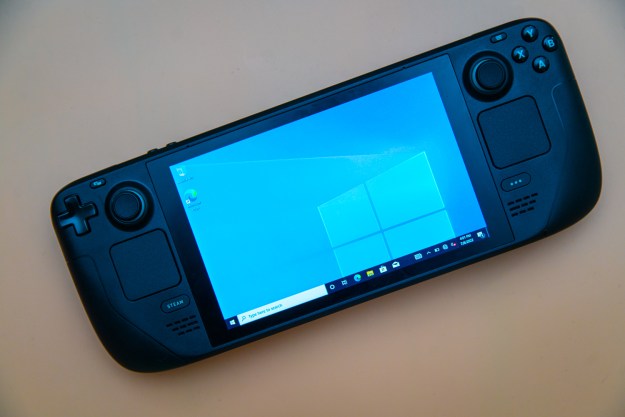
Speaking to a group of journalists gathered in Barcelona for Mobile World Congress, which officially starts tomorrow, Microsoft has revealed some of the changes users can expect to see in its desktop and mobile operating systems this spring. Updates for both platforms are expected in April around Microsoft’s Build conference.
First up the desktop operating system: An update to Windows 8.1 is in the pipeline that makes it easier to use with a mouse and keyboard on non-touch devices. Microsoft’s Joe Belfiore explained that search, power and settings buttons will be more visible and that full-screen Windows 8/8.1 apps will have new title bars. The right-click menu is also being revamped in the Start screen environment.
App launching and switching via the taskbar will also be tweaked to make the interactions between the new Start screen and the old desktop environment more seamless. This matches up with some of the rumors we’d already heard about the next update for Windows.
Microsoft said that over 200 million Windows 8/8.1 licenses since its launch in October 2012, a figure that’s already been made public this month. 40 percent of Windows 8/8.1 devices sold are touch-enabled, and over four million Start screen apps have been downloaded by users.
Windows Phone
On to the mobile side of the announcements, and Microsoft promised support for more handsets and chipsets for Windows Phone in the next update, which is widely assumed to be labelled 8.1 — dual SIM phones will soon be compatible, for example. This means the mobile operating system can be installed on a greater number of devices as the company looks to get a foothold in the market.
Hardware requirements such as the physical camera button will be relaxed, Microsoft confirmed. If you’re thinking that this would make it easier for manufacturers to build devices that could run either Android or Windows Phone, you’d be absolutely right. The softkey navigation system that was leaked back in December has been confirmed too.
Other nuggets of information released by Microsoft were that the next Windows Phone update will be backwards-compatible with all Windows Phone 8 handsets, and that Facebook Messenger will be arriving on the mobile platform in the space of a few weeks. The company also took the opportunity to announce a new set of hardware partners ready and willing to manufacture WP handsets in the future: LG, Samsung and Lenovo were among the names mentioned.
Editors' Recommendations
- How to set up Windows 11 without a Microsoft account
- How to install Android apps on Windows 11
- How to start Windows 11 in Safe Mode
- How to use cut, copy, and paste keyboard shortcuts in Windows
- How to remove a Microsoft account from Windows 11


